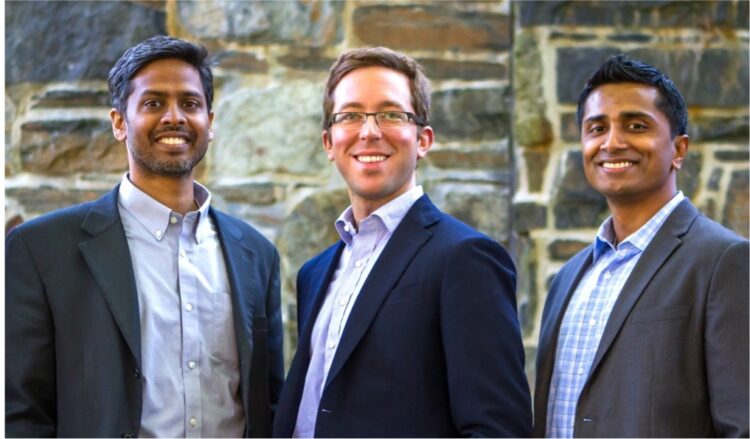Consider the responses if we were to take a public poll, asking the following question:
Do you find it important to live according to a set of consistent values in all areas of your life?
The answer from the majority of the respondents would surely be yes. The values may vary from person to person, but most people would at least pay verbal tribute to the notion of having a values system and wanting to live by it.
Now, another question:
Would you be willing to sacrifice your values if it meant making more money?
Again, surely most people would at least state that they would not be willing to sacrifice their values to make more money.
Now consider these same questions within the context of an investment decision-making room. Or, perhaps within a financial advisor’s office. The same respondents might have completely different answers.
Furthermore, think about how the bold ethos of “greed is good” became all but fully endorsed as a virtue within the jurisdiction of the financial services industry. People who would otherwise adamantly reject greed might find themselves being pragmatically sympathetic to it in the context of the financial services industry.
Shmoozing and selfishness have become more normalized and oftentimes seen as necessary attributes for success in the financial services industry. Relationships within the industry are understood to be built on the competing greedinesses of the practitioners and clients in hopes that everyone’s individual greedinesses will mutually complement each other in a way that everyone benefits.
It turns out, however, that this unspoken understanding is not sustainable. This ethos has led the Department of Labor to step in and declare whose greediness is more important by creating a policy that mediates the competing interests of plan fiduciaries and their clients.1
This highlights the fact that a powerful ethos exists within the financial services industry that influences the behaviors of the individuals, ideas, and institutions that comprise it. While the industry may be in a stage of trying to rid itself of this greed-driven perception, we’re seeing the results of many years of its dominance. And the results do not bode well for the industry.
Lack of Trust is a Problem
In the earliest days of our country, bank buildings were grand and solid structures erected in the middle of cities and towns to symbolize the stability and long-term commitment of the bank to the community. For banks, trust was critical to their ability to conduct business.
Fast forward to today.
The global communications firm, Edelman, consults with businesses and organizations to promote and protect their brands and reputations. Each year, the firm publishes a global report called the Edelman Trust Barometer, which details the public’s trust in a variety of countries, organizations, and other general institutions. In order to gauge trust levels in various industry sectors, the researchers asked the following question:
Please indicate how much you trust businesses in each of the following industries to do what is right.
Only 57% of the respondents indicated that they trusted businesses within the financial services industry to do what is right.2 This places the industry dead last among its industry peers. It turns out that people do not place a lot of faith in an industry with an ethos perpetuated by greed. No wonder policymakers felt it necessary to step in and make an attempt to control the greed by deciding whose greed was most important. Greed is unsustainable as a guiding ethos for any industry, whether it be the ethos of the practitioners or its customers.
Greed is antithetical to trust and, as Edelman’s research report states, “Trust [is] essential for future success.” Without trust the industry will crumble.
So, the answer to the following question is crucial:
How do we regain trust within the financial services industry?
A Mission of Service
Nurses have been ranked as the most highly trusted profession for nearly two decades. This is important since nurses’ “customers” are their patients, and their patients place their lives in the nurses’ hands. The best nurses convey two essential traits of trustworthy people—warmth and competence. This means they give the perception of having both good intentions and the ability to carry out those intentions. Patients often trust nurses more than they trust themselves. After all, not many people would ever choose to be stuck with a two-inch needle, but if a nurse tells you that it will help you in the end, you trust their advice.
Something profound is going on here. Why is it that nurses have such high amounts of social capital? It is because nurses have an implicit mission statement that people understand, namely, “We’re here to help.”
This reality is profound because it reflects God’s design. It’s no coincidence that a profession that carries a mission of sacrificial service is also bestowed with the highest amount of trust.
Luke 4:18-19, sometimes referred to as the Nazareth manifesto, is commonly understood to be Jesus’ mission statement for his ministry on earth:
The Spirit of the Lord is on me, because he has anointed me to proclaim good news to the poor. He has sent me to proclaim freedom for the prisoners and recovery of sight for the blind, to set the oppressed free, to proclaim the year of the Lord’s favor.
And, in John 20:21, he invites us to join him in his mission:
As the Father has sent me, so I am sending you.
Clearly, Jesus’ mission was to serve. And he commissions us to do the same, regardless of our professions. It has become common to make a false distinction between occupations that are meant to serve others and those that are simply meant to make money. Perhaps this false dichotomy is what took place in the financial services industry. We somehow forgot that this industry is one of service.
An Invitation to a Holiday at the Sea
Financial advisors have the unique role of directly engaging with clients on behalf of the industry, which means their responsibility is twofold:
1. To operate their practice with a mission of service.
2. To mobilize their clients to live out this mission with their finances.
But why is this so difficult?
Is it because advisors are too passionate about pursuing their own pleasure? Is it because their clients are too passionate about pursuing theirs? Or, could it be that most advisors and their clients have never experienced what it’s like to live in a kingdom-minded way with their finances?
As C.S. Lewis beautifully points out in one of his sermons, “The Weight of Glory,” most people are satisfied with “making mud pies in a slum [because they] cannot imagine what is meant by the offer of a holiday at the sea.” 3 An approach to spending, saving, giving, and investing that uses money as a means of security, affirmation, and acceptance ultimately leads to stress, insecurity, and emptiness. Therefore, if bigger barns, bottomless account balances, and flashy assets are used as means to these ends, they are essentially playing the roles of the mud pies in the slums that people are pursuing at the expense of spending a holiday at the sea.
The holiday at the sea, on the other hand, is something far greater and is accompanied by a true richness, contentment, and a deep-seated satisfaction that springs from being a whole person. As an advisor, if you encourage and enable your clients to glorify God with their finances by blessing others rather than encouraging and enabling them to glorify themselves by impressing others, you will be inviting them to enjoy a holiday at the sea that is far more satisfying than a mud pie.
How do you invite your clients to this holiday? It begins with a question of desire.
What do you want?
The answer may be skewed by the context of the financial industry. So, let’s ask the question again:
What do you really want?
Most financial advisors are limited by the tools and advice that are typical in the industry and, as a result, they limit their clients’ answers to the ones they can solve with these run-of-the-mill resources. The advisors who reorient their practice to truly serve their clients have far more tools in their belts that are capable of handling the deepest desires of their clients. Just like the traits of warmth and competence are essential for nurses, so too are they for financial advisors. Understanding a client’s deepest desires conveys a sense of warmth and good intentions. At the same time, wielding the tools to help achieve these desires displays competence.
As an example, most advisors can advise on how to pay down a mortgage and buy a second home, invest for a grandchild’s education, or strategically donate money to certified 501(c)(3)s for tax benefits. These are certainly valid goals, but they more than likely do not encompass all of a client’s richest desires.
Perhaps a client has a deep desire to be involved with caring for the large number of Syrian refugees in their city. You may be able to help them partner with others with the same desire to invest and save in order to purchase a house that they can offer to refugees in need. Maybe they desire to make sure that underprivileged youth have access to quality education, and you have a connection with a startup charter school in a low-income neighborhood that provides the avenue for your clients to donate their time and their money to become actively involved in the everyday operations of the school.
Or, it could be that a client wants their capital to be put to good work in their investment portfolio by investing in companies that are profiting from adding value to society and not investing in companies that are harming their neighbors.
Whatever it may be, this is the vision of a financial advisor that is dedicated to serving their clients by inviting them to enjoy a “holiday at the sea.” You’re not asking them to give up their desires, you’re encouraging them to realign and enhance their desires. The advisor that seeks to understand his clients’ highest desires and holds the tools that enable their pursuit will no doubt earn a much deeper trust than an advisor who leads their clients to make mud pies in the slums by allowing them to settle for lesser desires.
Conclusion
The financial services industry has a trust problem. The problem stems from a longstanding assumption that the industry should operate from greed rather than service. The solution then is not to double down and assume that a more hard-pressed pursuit of greed will instill more trust, but rather reorienting the industry to a higher calling—service. It is by design, and no accident, that professions that have a we’re-here-to-help mission garner far more trust than those with an eye toward just making money.
As Christians seeking to be a faithful presence within the financial services industry, we look for winsome ways to display the goodness of the kingdom to come. To this end, there is perhaps no better way to illuminate the good works of Christ than to reorient the industry of money-making into an industry of service.

















